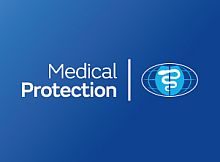At the time of publication, South Africa is scheduled to receive the first doses of the Oxford-AstraZeneca COVID-19 vaccine from the Serum Institute of India (SII). The Medical Protection Society discusses best practice, consent and practical considerations for those administering the vaccine.
The government has directed that healthcare workers in various categories (depending on their potential exposure to the coronavirus) will be the first in line to receive the first vaccine doses in Phase 1 of the vaccine rollout.
The provision of vaccine doses will be welcome relief to frontline healthcare workers who have been at risk throughout the pandemic. However, the clinicians administering the vaccine will be mindful of the immense responsibility they face as well as the need to observe best practice while dealing with a particularly high workload.
Best practice
While the rollout of this particular vaccine is of considerable interest, usual standards of best practice must be applied. The Department of Health has issued a guidance All you need to know about COVID-19 and vaccines – A Complete Guide. This guidance states the government’s target of vaccinating 67% of South Africa’s population by the end of this year.
There have been reports that a small minority of patients have experienced an adverse reaction to some of the COVID-19 vaccines. Any healthcare practitioner administering the COVID-19 vaccine must have the ability to address acute allergic phenomena as well as, if necessary, resuscitate a patient at the consultation room where the vaccine is administered. They should have immediate access to airways of various sizes, intubation equipment, oxygen and injection vials of adrenaline, antihistamine, bronchodilators and steroids via IV line.
Principles of consent
As clinicians are expected to deliver high volume of vaccines in addition to an already high workload, it may be tempting to treat consent as simply asking patients to roll up their sleeves.
However, South African law acknowledges a patient’s autonomy and any medical intervention concerning the body must only be undertaken with a patient’s informed consent.
The National Health Act (NHA) guide under Section 6 states the following :
Every health care provider must inform a user of:
(a) the user’s health status except in circumstances where there is substantial evidence that the disclosure of the user’s health status would be contrary to the best interests of the user; (b) the range of diagnostic procedures and treatment options generally available to the user; (c) the benefits, risks, costs and consequences generally associated with each option; and (d) the user’s right to refuse health services.
In summary, the key principles of a valid medical consent are: The patient must have capacity to consent; and they should have the capacity to understand, retain and weigh in all the information relevant to a particular decision.
There are mainly two components of assessing legally recognised capacity – age and decisional capacity. At the time of writing, the COVID-19 vaccines have been given regulatory approval for adults only, meaning decisional capacity will be the main consideration.
Decisional capacity refers to the capacity of the patient to make decisions based on information received about relevant risks, benefits and consequences of the proposed intervention.
A person’s capacity should not be judged simply by age, appearance, condition or any aspect of their behaviour. If a patient’s decisional capacity is in doubt, an assessment should be carried out. For example, this means conveying information to the patient with the use of plain and simple language, while gauging their understanding and then asking questions about the salient points to see if the patient has grasped them. It is essential that the discussion is done in a language that the patient understands, and in a manner which takes into account their level of literacy.
The process of assessing a patient’s decisional capacity should be carefully documented, including all the evidence gathered to inform the judgement about the patient’s decision-making abilities.
The patient must have sufficient information to make a choice
Without adequate information, patients are unable to make decisions about their treatment. The Department of Health’s guidance on COVID-19 vaccinations would be a useful starting point for patients seeking further information on the vaccine.
As this is a mass inoculation exercise that has attracted a considerable amount of conspiracy theories, it may be worth developing a standard informational sheet for patients who have doubts or show sentiments of being anti-vaccine.
The patient must be able to give their consent freely
Pressuring patients into consenting to treatment invalidates the consent. A failure to respect the rights of the patient could be met with a complaint to the HPCSA, and may lead to a claim.
Record keeping
Good record-keeping is also necessary when administering a vaccine. The consent needs to be fully documented in the patient notes as should any adverse reactions.
Practical considerations
The healthcare provider must have adequate public liability insurance cover in place for the designated vaccination site, to protect them against incidents such as slips or trips which may occur on the premise.
Please approach your medical defence organisation for advice on indemnity support that you may need as a result of your participation in the COVID-19 vaccination programme.
[link url="https://sacoronavirus.co.za/2021/01/13/all-you-need-to-know-about-covid-19-and-vaccines-pdf-guide/"]All you need to know about COVID-19 and Vaccines – a complete guide[/link]
[link url="https://section27.org.za/wp-content/uploads/2019/07/Stevenson-National-Health-Act-Guide-2019-1.pdf"]Stevenson National Health Act Guide (2019)[/link]
See also in MedicalBrief archives:
[link url="https://www.medicalbrief.co.za/archives/doctors-see-benefits-of-telehealth-though-most-are-concerned-some-patients-may-get-left-behind/"]Doctors see benefits of telehealth — concerned some patients may get left behind[/link]
[link url="https://www.medicalbrief.co.za/archives/the-arrest-of-a-health-professional-how-it-happens-and-why-it-should-only-be-a-last-resort/"]The arrest of a health professional — how it happens and why it should only be a last resort[/link]
[link url="https://www.medicalbrief.co.za/archives/munshi-reflecting-on-a-tragedy/"]Munshi: Reflecting on a tragedy[/link]
[link url="https://www.medicalbrief.co.za/archives/concourt-ruling-conviction-overturned-but-what-now-for-the-profession/"]ConCourt ruling: Conviction overturned – but what now for the profession?[/link]
[link url="https://www.medicalbrief.co.za/archives/the-hard-truths-exposed-by-covid-19/"]The hard truths exposed by COVID-19[/link]

